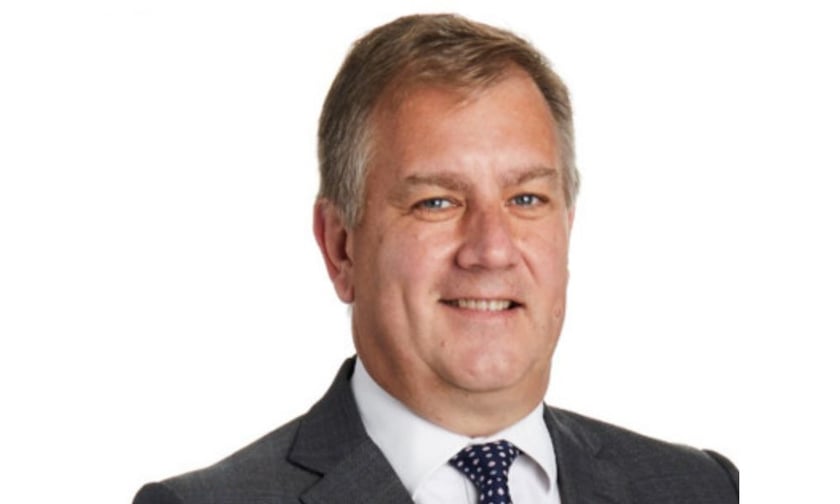

Accountants are often regarded as quiet, retiring types and not prone to excitement. So when an accountant mentions the word “passion” you take notice.
“I’m particularly passionate about integrated reporting,” said Darren Scammell (pictured above) during a Financial Services Accountants Association (FSAA) webinar presentation on ESG (Environmental, Social, and Governance).
Scammell is a partner at consulting firm Grant Thornton, national head of financial services and leads its ESG advisory offering.
Integrated reporting is the next big change for firms and how they go about financial reporting. Scammell’s online talk this week suggested this could be a game changer for insurers and how they approach risk managing clients.
He said the concept of integrated reporting “is beyond just the book value of the financial statements.”
Scammell said this approach includes examining why the organisation is valued, what is valued and whether those assessments are accurate.
“This is the integrated reporting that a lot of organisations are starting to talk about and it has a real investor focus,” he said.
The stage has already been set with increased regulation around ESG. However, said Scammell, Australia is lagging.
“We are behind but we’re catching up quickly,” he said. “Most organisations have ESG and sustainability reporting, there’s a need for it.”
He said local regulators have demonstrated their appetite for pursuing cases of greenwashing and blue washing.
“The federal and state governments are definitely talking about it, because it’s votes,” said Scammell.
He also suggested that the priorities of customers served by insurers and other firms are significantly changing.
“People are starting to say, ‘I won’t buy from you because you don’t have good ESG [but] I will buy from you because you do,’” said Scammell.
Today’s consumers, he said, are not just concerned about the environment, they’re also looking at slave labour issues and how their food is grown. Ethical issues, he suggested, are driving not only where consumers put their money but a preparedness to pay more when a firm is aligned with their values.
“It’s a real change and this is creating pressure up and down supply chains,” said Scammell.
The International Financial Reporting Standards (IFRS) Foundation, according to its website, “is a not-for-profit, public interest organisation established to develop high-quality, understandable, enforceable and globally accepted accounting and sustainability disclosure standards.”
The IFRS has released a framework of sustainability disclosure standards in response to these wide-ranging changes and challenges. Scammell detailed what companies – including insurers – should focus on in this framework.
So far, the IFRS Foundation has produced two sustainability disclosure standards.
“S1 is an overarching framework of reporting how will you go and report this information,” said Scammell.
He said S2 “is around carbon.” Larger companies in Australia, said Scammell, will need to start reporting carbon emissions on June 30, 2025. The move is part of the federal government’s plan to phase in climate-related disclosures.
The IFRS website says S2 applies to: “climate-related risks to which the entity is exposed,” including both climate and transition risks.
Another interesting feature of this standard is how it requires the information disclosure to be in a form that a “user” of a financial report can “understand”.
The climate risk information requirements under S2, according to the IFRS website, cross governance processes, the strategy for managing climate risks, how those risks are identified and climate risk management performance.
However, Scammell said this isn’t about firms providing hundreds of pages of disclosures.
“What’s material? We don’t want a 400 page document,” he said.
Scammell recommended starting by listing six to eight essential risks and opportunities and tying those to stakeholders’ interests.
“Then you would disclose that material information around the risks and opportunities,” he said. “Is it assured, for example, has it been audited? Are you risking making greenwashing or blue washing statements?”
Scammell said Australian firms of all kinds will need to become accustomed to scenario testing.
“You in the insurance industry, being APRA regulated, are used to doing scenarios, a lot of organisations aren’t,” he said.
Scammell suggested some of the issues that should be reported. They included the quantity of greenhouse gas emissions, the percentage of vulnerable assets and the firm’s spending on opportunities linked to climate change.
“Some corporates are linking remuneration of their senior executives to climate change considerations,” he said. “This all needs to be disclosed.”
After climate disclosure guidelines under S2, he said other more specific guides will follow.
“There’s word that S3 will be nature,” said Scammell.
He said that would include water usage and how waste gets recycled.
“S4 could be around slave labour,” said Scammell. “S5, they’re thinking, might be an integrated report.”
This is where Scammell’s passion was evident, although he expects S5 to be five or six years away.
“[Under S5] Entities could actually be required to put their business model into their financial reporting,” he said. “So how do you make money? Why are you sustainable into the future?
He said this “huge change” is going to be challenging given that some of this information is “competitive.”
“But that’s where it’s going to end up,” said Scammell. “That’s our view and people who I am involved with, they’re saying that business reporting could come.”
Are you an insurance industry stakeholder? How do you see the implications of integrated reporting? Please tell us below
